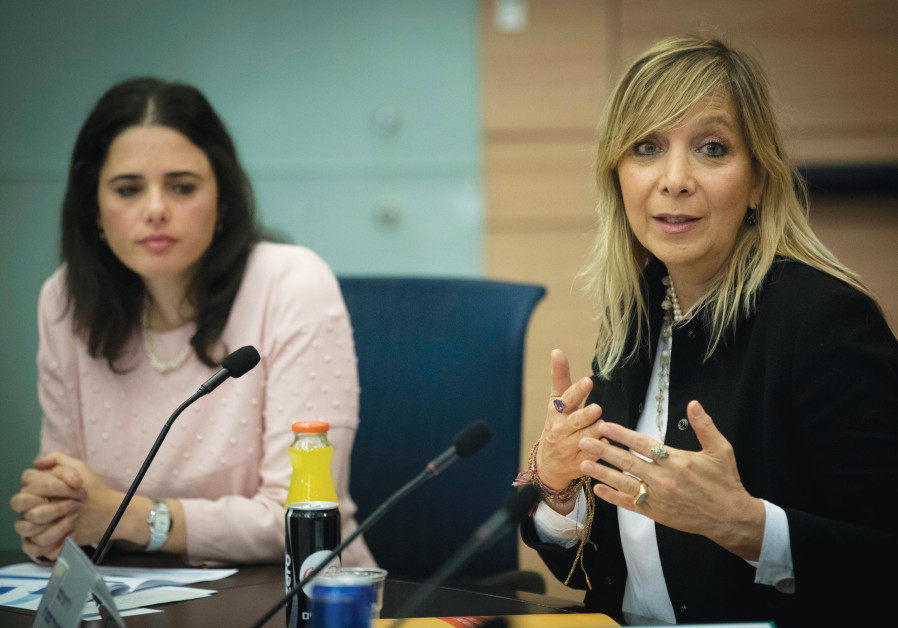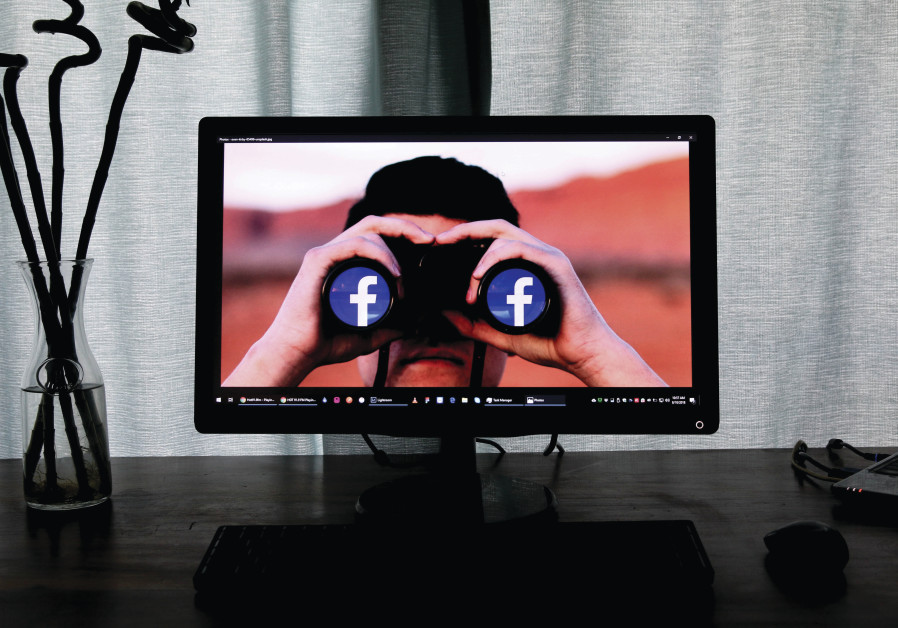Policymakers around the world are bracing themselves for a decision by Facebook’s Oversight Board on whether to uphold US president Donald Trump’s ban from the social network – expected in the coming days.
The issue has since gone to the independent Oversight Board, which has been called Facebook’s Supreme Court, meant to rule on the most consequential of the network’s decisions to take down posts and bar people from its site. The Board uses Facebook’s rules as its lawbook to make rulings on whether to uphold or overturn the network’s own rulings.
The Oversight Board is ostensibly independent, but Facebook also funded its launch to the tune of $130 million in 2019. Still, in its first batch of decisions released earlier this year, the board overturned five of seven decisions by Facebook to remove content that it has reviewed so far, choosing to err on the side of free speech.
One example was a video criticizing the French medical standards authority for not allowing doctors to prescribe hydroxychloroquine with azithromycin to patients with COVID-19; Facebook argued that it consisted of disinformation that could lead to physical harm and took it down. The Board said that, since people in France cannot get those medicines without a prescription, the post does not meet the standard of causing imminent harm. The board also said Facebook’s rules on these matters are “inappropriately vague” and called on the network to create new rules on health misinformation.
With an imminent decision on Trump on the Oversight Board’s docket, all eyes are on its 20 members. They come from around the world, from Kenya to Australia, from Yemen to Colombia, from Indonesia to Hungary, and four members are from the US. Their backgrounds are in law, human rights, journalism and politics.
PALMOR WAS asked to apply for the Oversight Board position, but that’s not the story she likes to tell. Palmor wants to be a role model for women in the workplace and encourage them to be ambitious and strive for important positions – and doing that is not as effortless as getting an offer “out of nowhere,” as she described it.

It was 2013, the year Facebook COO Sheryl Sandberg published her book on female workplace leadership Lean In, and Palmor, director of pardons in the Justice Ministry, had only just started the book when she read there was a sign in Google’s offices that read: “What would you do if you weren’t afraid?”
In a routine meeting with Livni, Palmor told the minister about the sign, and Livni asked her that question.
“I told her I think she should nominate me as director-general of the Justice Ministry,” Palmor recalled. “It took another six months and she interviewed many other women, but she finally nominated me.”
Palmor prefers to tell this story, because, she said, “Women always assume men work hard and then get amazing offers that they only need to consider. Women should know they need to be active about their careers.”
But the one time she did get an amazing offer, it was from the Oversight Board – though she did have to go through a lengthy application process – and Palmor recounted that she saw the job “as a very natural continuation of my career as a civil servant… I took care of the Israeli public in my 24-year career, and now I see myself as someone working for the public of 2.5 billion Facebook and Instagram users around the world.”
Palmor’s “mission is to give a voice to people who are frustrated with the platform and with social media, and to try to make it better,” she noted.
The Israeli government and Facebook have had their own tensions over the years – especially in the 2015 stabbing intifada, where anti-Israel posts on the network were blamed for inciting terrorism – but Palmor said she was not involved, because the State Attorney’s Office is independent of the Justice Ministry leadership. Still, she came into the job knowing the negative connotations Facebook could have for many Israelis.
“We were not picked for our positive opinions about Facebook,” Palmor said of the Oversight Board. “I think members of the board were picked because of the different backgrounds that we’re bringing.”
Palmor worked on diversity and inclusion programs within the Justice Ministry, including recruitment and training initiatives for Arabs, Israelis of Ethiopian descent, ultra-Orthodox, women and people with disabilities, and was the chairwoman of the Committee on the Eradication of Racism against Israelis of Ethiopian Descent, among others.
Yet the constant confrontation with such a diverse group of people on the Board has been even more “interesting and fruitful” than Palmor expected.
“After being on the Board for a year, I can tell you how difficult it is for people who come from different cultures and have never met to trust each other,” Palmor said. “We assume all kinds of things about each other, and it’s challenging to open up and be opinionated and try to understand the way things are understood in countries around the world.”
The mixture of professions, of scholars, activists, lawyers and others, who are meant to continue in their day jobs in addition to being on the Board, helps the panel tackle problems from different angles in a way that improves the decision-making process, she said.
PALMOR REPEATEDLY said the Oversight Board “is not the UN” and that she is not there representing the State of Israel, nor is any member representing his or her country or its interests per se. Still, Palmor said she brings her strong Jewish and Israeli identity to the panel.
Since the Board started operations during the pandemic, its members never met in person, and Palmor suggested an activity for them to get to know each other. The members were broken up into groups of five and asked to bring something personal and talk about themselves.
For an Israeli, Palmor said, “personal is really personal.”
“I brought a photo of my mother and her sister when they were nine and five, just before they were deported to a concentration camp,” Palmor recalled. “I see this picture every morning before I leave the house, because I want to remember it. My mother is still alive and a very dominant person in my life and her story is very important in our family life and Jewish history. The memory of how she was part of a persecuted minority in Romania, under fascists, Nazis and communists – one regime after another until she made aliyah in 1960, after being refused for nine years…
“That was my way of introducing myself and explaining how I found myself in civil service… This is part of why I am on the Oversight Board. I believe in serving a bigger cause than myself.”
Palmor’s presentation was much more personal and serious than anyone else’s, and said she ended up feeling awkward: “None of them had anything close to this.” But now, she said, she feels very close with the group.
She also feels “so Israeli and so different culture-wise” during the Board’s discussions.
“I’m always very passionate about the things we do, with my opinions, and I always have hope that I will be able to convince my colleagues,” she said. “Everything is quite polite even when we do disagree.”
The Oversight Board has not dealt with a case involving antisemitism yet, but Facebook did publish new standards on the matter in the months after Palmor joined. The Board’s rules specify that someone from a case’s particular geographic area should be on the panel examining a decision, but Palmor said she plans to suggest that she should be one of the Board members adjudicating cases of antisemitism.
“Obviously by being Israeli and being Jewish… I have an opinion on those issues and I have a deeper understanding than anyone else on the board.”
PALMOR WAS also targeted by the anti-Israel boycott, divestment and sanctions movement, who spread lies about her time in the Justice Ministry.
“Palestinians are very angry with Facebook and [Facebook CEO Mark] Zuckerberg, because of their feeling that they are being censored,” she stated. “They assume they are being censored because Zuckerberg has been attentive to requests from the Israeli government, meaning the Justice Ministry’s cyber unit, and that is the linkage that was made.”
Palmor had nothing to do with the cyber unit and no power over it when she was Justice Ministry director-general, yet an anti-Israel group based in Haifa claimed she established and led it, and that she personally prosecuted Palestinians.
“These are lies, as anyone who knows the Israeli system would know. Someone reached out to [the organization] and they said we know it’s not true, but it’s a good campaign,” Palmor said. “Unfortunately, Jewish Voice for Peace joined them… and I can say that for me, an Israeli, it is very difficult to explain to the administration of the board. If I say it’s BDS, that’s one thing, but when it’s a Jewish organization joining them, it’s more difficult.”
Palmor said she considered suing the Haifa-based group, because being targeted by BDS has been distressing for her, but the Oversight Board’s communications team recommended she ignore it.
Palmor sought to encourage Israelis to bring cases to the Oversight Board when appropriate, and hoped the public would bring the Board to task, to keep it effective.
“I really think that the public and of course the press could be the watchdog of the Oversight Board, which is the supreme watchdog of freedom of expression on Facebook,” she said. “The importance of what I expect journalists to do is to be critical of the board, to read the decisions and follow what is happening.”
One of the most far-reaching things the Board does, according to Palmor, is its policy recommendations. Facebook is required to comply with the Board’s rulings on specific posts, but does not have to follow recommended rule changes.

Palmor said she has received letters from academics and members of Congress in the US, and that Israelis should also follow what the board is doing and demand it be a strong institution.
“Some people are so disappointed or critical of Facebook that they assume there is no possibility it will ever be anything but a fig leaf, but that is not true,” she said.
Palmor gets calls and messages from many Israelis complaining about things they saw on Facebook, or that their posts or accounts were blocked, and she emphasized that she can’t help them and is not involved in the everyday Facebook user experience. The board deals with cases only after all of Facebook’s regular channels for appeals have been exhausted.
Those messages to her personal phone is another way her experience as an Israeli on the Board is different from anyone else.
“We have a former prime minister on the Board – Helle Thorning-Schmidt of Denmark – and she was surprised. She said she never answers messages from numbers she doesn’t recognize. I told her, this is Israel. If I don’t answer, I’ll see that person in the supermarket the next day and they’ll say, ‘Look at Emi Palmor, the snob who didn’t answer my text,’” she chuckled.
While Palmor called on Israelis to make their voices heard, she quipped: “Please stop texting me at 1 a.m.”
